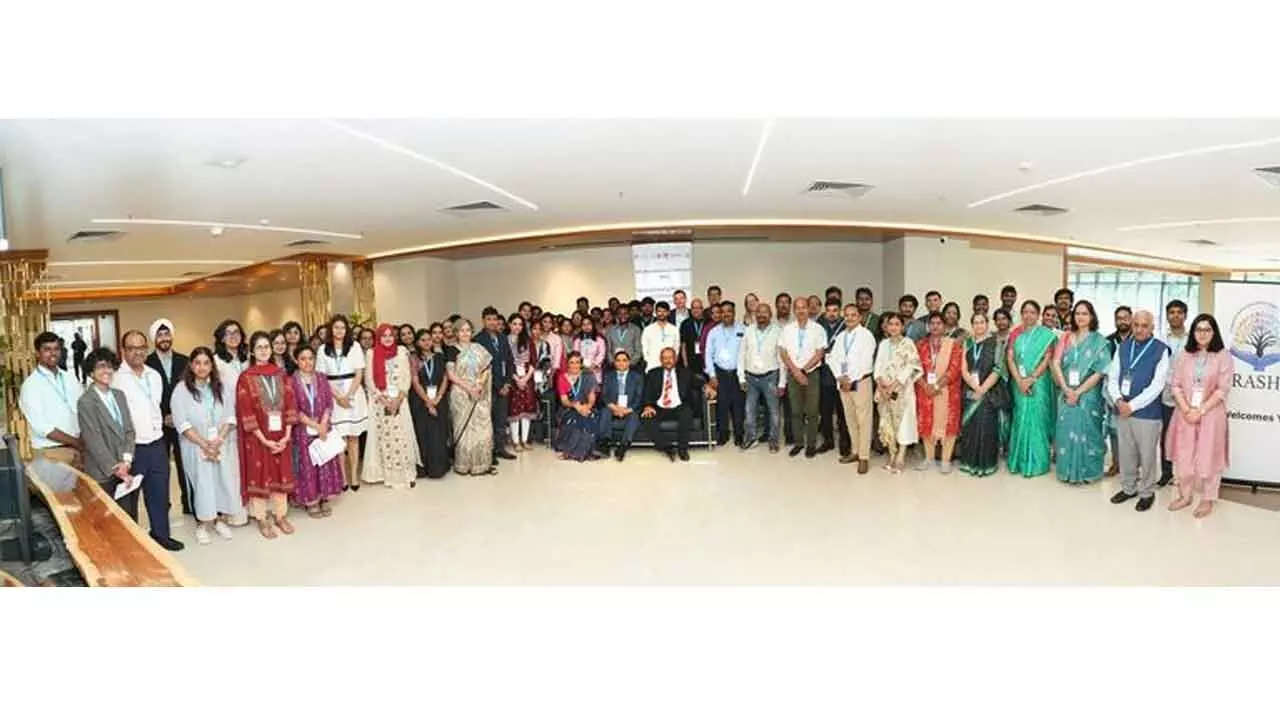International Conference On Disability & Development: Stress On Inclusive Research And Systems To Support Special People
Researchers, activists, practitioners, and policymakers discussed gaps in research, and barriers faced by people with disabilities
Researchers, practitioners, policymakers and other participants at the 8th International Conference on Disability and Development, in Hyderabad

Hyderabad: Dr Zelalem B Taffesse, Head of UNICEF Hyderabad, emphasised on the urgency of inclusive research and systems to support people with disabilities. He opened the 8th International Conference on Disability and Development held in city recently. He said, “We must build systems and governance structures that unite communities, governments, and people with disabilities. Early identification is crucial—missing it means failing children at the very first step of care.”
The event was organised by the Pragyaan Sustainable Health Outcomes (PRASHO) Foundation, the PENDA Programme, the International Centre for Evidence in Disability (ICED), and the London School of Hygiene and Tropical Medicine (LSHTM), the event brought together researchers, activists, practitioners, and policymakers to focus on improving research and evidence to advance the inclusion and well-being of people with disabilities.
The conference featured discussions on gaps in research, barriers faced by people with disabilities, and strategies to translate research findings into impactful real-world solutions. Experts representing universities, NGOs, and the Ministry of Health and Family Welfare provided their insights. The themes explored included the role of technology in empowering people with disabilities, the need for robust data collection systems, addressing barriers to accessing assistive devices, and emphasising the importance of evidence-based policymaking to bridge gaps in service delivery.
Hannah Kuper, Director of ICED at LSHTM emphasised the importance of addressing challenges through evidence-based interventions. Dr Kuper also spoke about ongoing trials in inclusive family planning coverage and other collaborative programs with policymakers aimed at strengthening disability data and evidence to inform impactful policies and practices.
Prof Murthy, President of the Prasho Foundation, highlighted the pressing need for published evidence to enable effective planning of disability programmes. Dr Suneela Garg, Chair of the Program Advisory Committee at the National Institute of Health and Family Welfare, presented the magnitude of hearing loss, the barriers, and the challenges to address. During the conference, the Prasho Foundation and Mobility India signed a Memorandum of Understanding (MoU) to collaborate on research, capacity building, and data dissemination. This partnership will work towards strengthening efforts to promote disability-inclusive development by enhancing the research capacity of both organisations, improving accessibility to assistive devices, and ensuring the dissemination of critical data to inform evidence-based policies and practices.
Over the two days, more than 100 participants attended in person, alongside a significant number who joined live online.

